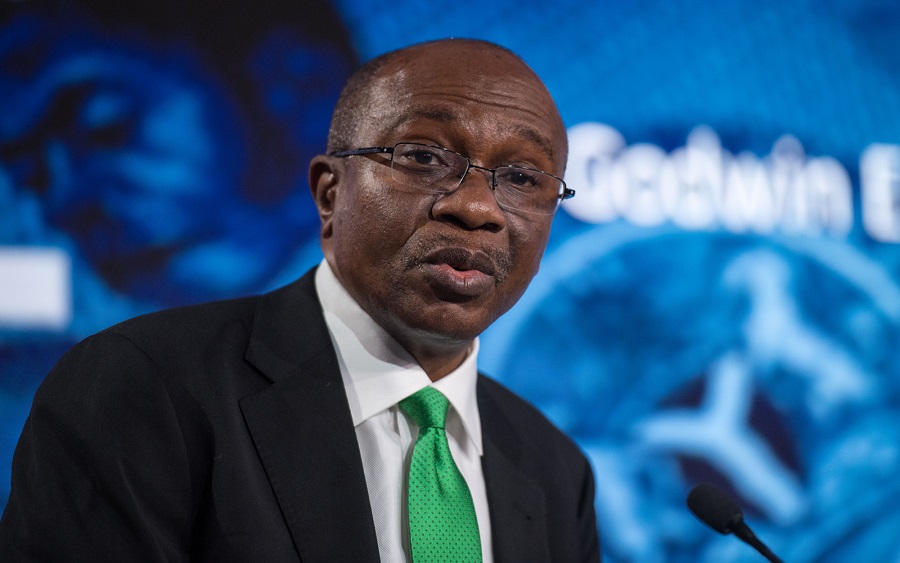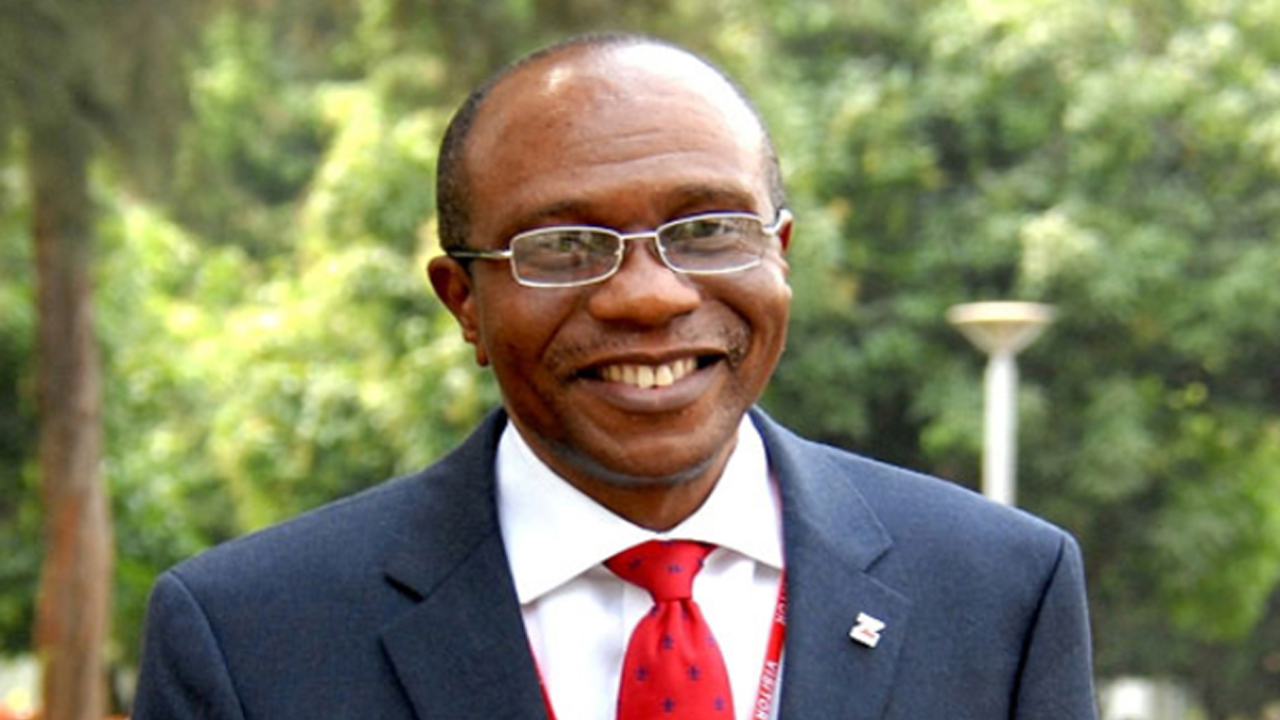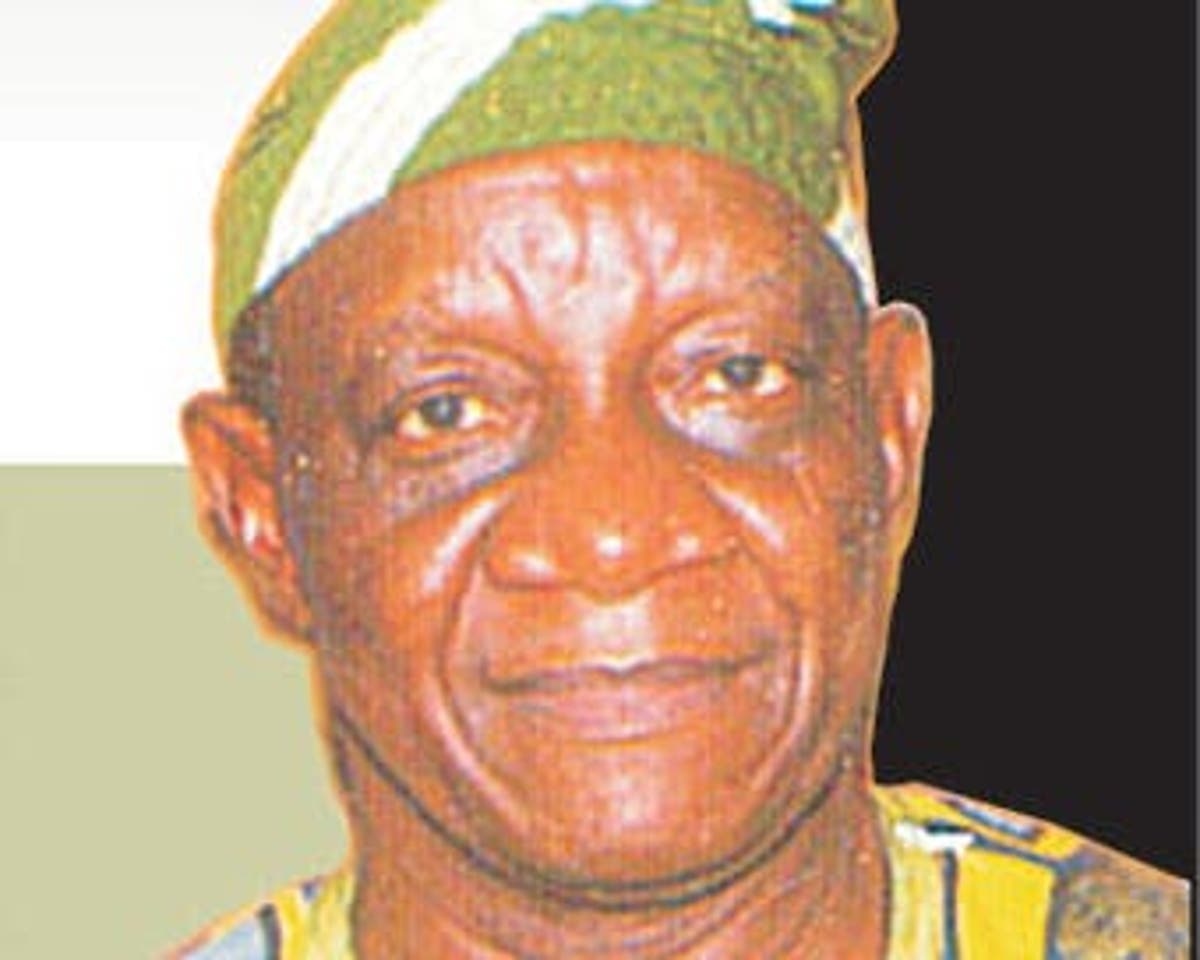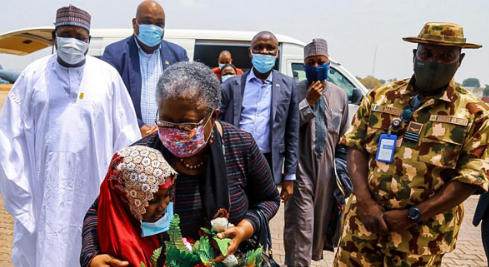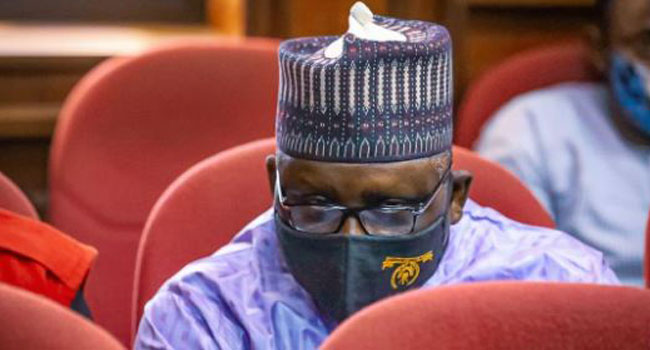Chidi Amuta
President Muhammadu Buhari would have made a bad orchestra conductor. In that line of business, a certain faithfulness to synchrony and harmonious outcome is the secret of success.
Even in his primary lifelong career of soldiering, order and uniformity have remained the hallmarks of the best traditions of the military endeavour. His present occupation of politics is however somewhat different. Politics is the pursuit of ultimate order by means of organized incoherence and deliberate multi speak. Yet power, which is the end of politics, assures governance. Success in governance is the triumph of order in the service of everyone’s good. Disorderly governance is the harbinger of something frightful: anarchy by whatever its various aliases.
In recent months and weeks, Nigerians have been treated to a festival of discordant tunes from the apex of national power and governance. Sustained public outcry led to a belated firing of jaded and incompetent service chiefs. Before the public could decide on whether the service chiefs were pushed out or forced to jump off the wagon, the President nominated all of them for ambassadorial positions.
Buhari administration seems to be posing fresh challenges for political science on the proper definition of governance in a democracy. Is government a collective responsibility with a unified position and voice? Or, is it an incoherent choir of privileged citizens as lone wolves in which each man or woman in authority sings what he pleases on public issues?
A Senate that is ever ready to rubber stamp literally any knee jerk or sneeze from the executive branch readily confirmed the former service chiefs to represent Nigeria anywhere the president may send them in the world. No questions asked. No recourse to proper security clearance. No audit clearance by the different arms of the services over which they presided. Not even a public hearing to allow the ex chiefs to defend their track record of public service in their controversial recent roles against the background of spiraling nationwide insecurity. There was not even an opportunity for the Nigerian public to decide whether the former chiefs understand civics let alone Nigeria’s foreign policy imperatives. Just “Carry Go” in popular Nigerian parlance! Take a bow and go!
Just last week, a controversial BBC interview by the president’s National Security Adviser, Mr. Babagana Monguno, raised disturbing questions about basic accountability under the ex service chiefs. Before Mr. Monguno was obviously compelled to readjust his position, he had raised questions concerning the use of the over $1 billion commandeered from the Excess Crude Account belonging to the states to fund military supplies in aid of the counter insurgency operations in the North East. By Monguno’s original account, there is as yet no verifiable evidence of arms and equipment procurement with the funds nor could the funds be located or properly accounted for. An embarrassed presidency jumped to reduce the damage, insisting that no money was missing. But the damage had been done in terms of the considerably degraded credibility of the Buhari administration who keeps swearing by its commitment to the fight against corruption.
While the embers of this potential scandal are still glowing, two major media outlets have recently treated the public to even more damning obviously leaked stories around the office of the NSA. According to a report in The Cable and substantially amplified by the San Francisco based The Will, Mr. Monguno was barely stopped from committing the nation to a $2.5 billion arms purchase deal with a United Arab Emirates third party arms supply company in aid of the same North East counter insurgency enterprise.
According to this yet uncorroborated report, the deal was only scuttled by the intervention of late presidential Chief of Staff Abba Kyari who along with the president insisted that arms purchases of that magnitude should only be on a government-to-government basis. This position was later reaffirmed by Vice President Yemi Osinbajo when the matter resurfaced when he was acting president during Buhari’s medical leave.
What is brewing around the NSA’s office is an obvious armsgate hurricane scandal with vast implications for the Buhari presidency. From the numerous reports of money and arms racketeering around the office of the NSA under former president Goodluck Jonathan, it is emerging that the office of the NSA in Nigeria has become a giant clearing house for nefarious arms and security fund related corruption. These range from funneling of funds for political purposes to questionable black market and middle man arms deals.
This trend, now being amplified under Mr. Buhari, raises many disturbing questions. In a country with a Ministry of Defence with extant bureaucratic structures of accountability and arms purchase procedures, it is strange that a black market structure has been allowed to grow in the office of the NSA. Instructively, the Nigerian Ministry of Defence has considerable experience in arms procurement transactions spanning a full -fledged civil war and numerous peace keeping operations for over four decades. Why would matters of arms purchases be left to the whims of the office of the NSA? Why would the office of the NSA be commandeered to carry out nefarious transactions and illicit covert security related operations in spite of the existence of the existence of agencies like the Defence Intelligence Agency(DIA), the Department of State Security(DSS), the National Intelligence Agency(NIA) and even the Police? Many informed opinions in Nigeria have since come to the conclusion that the insurgencies and terrorist related problems of the country have persisted for this long mostly because the entire military operations around them have since transformed into an industry of armed corruption, an over laden gravy train that is not in a hurry to end.
There is nothing in the section of the Constitution establishing the office of the NSA that entrusts it with the numerous underhand money laundering, humongous stealing and scam errands that we have witnessed both under Mr. Jonathan and now Mr. Buhari. The aberrations are typical exhibits of Nigeria’s institutionalized political rascality and leadership without accountability.
In the US tradition that we pretend to be copying, the office of the National Security Adviser is essentially meant to be one of an intellectual sounding board for the president on National Security issues. Its roles ought to include the generation of policy options as well as liaising with and among national security institutions and agencies on behalf of the president. It even includes strategic projections on future national security threats and building scenarios that would guide the president to avoid future national security emergencies that may grow into credible threats. This why US presidents have tended to traditionally prefer either renowned intellectuals or former military and intelligence persons with a certain measure of intellectual depth and curiosity to fill the position.
On a strictly governmental pecking order, while the NSA is a senior cabinet rank presidential adviser, the only difference between him/her and the other senior advisers of the president is in the nature of the NSA’s subject: security and intelligence. But strictly speaking, the office of the NSA in the US tradition is essentially one of the intellectual multiplier centres for increasing the options available to the president on matters of national security.
On matters of arms and armaments, the views of the NSA would only be important to the extent that such materiel affect the nation’s strategic advantages. Between the NSA’s office and the Pentagon there is both physically and conceptually a very long distance. I could not imagine former US NSAs like Condoleeza Rice, Collin Powell, Zbibigniew Brzenski or Jake Sullivan featuring as glorified arms merchants and political paymasters in any Pentagon arms procurement transaction!
For the office of our NSA to be reduced to an unlicensed mini bureau de change, politicians casino or an Arab street bazaar of infamy is the hallmark of a leadership decay that can only be Nigerian. Furthermore, to use that office to usurp or dilute the functions of the Ministry of Defence is a tragic institutional devaluation. Even worse is the anomaly of allowing the service chiefs to be absorbed in the mundane gritty of direct arms procurement transactions instead of serving as technical advisers to the Ministry of Defence as end users of the armaments. On the potential scandals now flying around on arms and money around the office of the NSA and the former service chiefs, the least that the Nigerian public expects from president Buhari is the urgent institution of a credible investigation into these allegations. The benefit of such an investigation belongs ultimately to the president whose legacy may be further tainted by the potential scandals.
To nearly every ordinary Nigeria, economic calculations begin and end at the gas station. The pump price of petrol and diesel determine most other things that are important to ordinary lives. And for successive Nigerian governments, routine and frequent increases in the price of petroleum products has become the readiest form of lazy taxation. Claims of subsidy on imported petroleum products has fueled the frequent price increases. Barely a fortnight ago, the Petroleum Price Regulatory Agency (PPRA) which administers the prices of these products on behalf of government announced a sudden increase in petroleum products prices, the third or fourth in the last two years. The public woke up to find either shut gas stations, long queues or increased prices. Labour unions were caught unawares. A showdown between government and labour accompanied by spontaneous public unrest was imminent. Government panicked but feigned lack of awareness of the decision to hike prices. The NNPC and the Petroleum Ministry went into a damage control mode by disowning an condemning the increases as unauthorized. The imminent price increase was doused and reversed pending consultations between government and labour.
Here again, on something as important as petroleum product prices, this government was as incoherent as can be. The Ministry of Petroleum and a parastatal under its direct purview were discordant. There is no greater indication that this government lacks internal cohesion and consensus on even the most fundamental issue that affect the welfare of most Nigerians.
While all that lasted, news came that the United Kingdom government was in the process of returning the sum of £4.2 million recovered from former Governor James Ibori of Delta State. Even before the funds were received, President Buhari’s over politicized Attorney General, Mr. Abubakar Malami, quickly announced that the anticipated funds would be appropriated by the federal government to pay for ongoing federal projects ranging from the Second Niger Bridge, the Kano-Kaduna highway and the Lagos-Ibadan expressway etc. Interestingly, no senior official of government or even the presidency itself offered any view in support of the Attorney General. There was no indication that the Attorney General’s position reflected the collective stance of government resulting from any systematic consultations, logic or concerted policy position.
Quickly, the position of the AG was greeted by a firestorm of nationwide controversy which was clearly avoidable. Common sense dictates that the recovered funds should on receipt revert to Delta State from whose coffers they were stolen in the first place. It is of course the responsibility of the federal government and specifically the office of the Attorney General’s office to stage all the legal processes required to deal with any legal matters between the Nigerian sovereign and any external jurisdiction. Once that matter is resolved, the proceeds of the outcome will automatically revert to whatever Nigerian province of state where remedy and restitution is deserved. In the case of the Ibori funds, the money belongs squarely to Delta State and should be accordingly returned to it. A father who fights off robbers who invade his home to steal the property of one of his children can only restore the stolen item to the affected child when recovered, not distribute the recovered item to the entire family. It does appear that what we are dealing with in the Ibori matter is once again the overbearing ego of an Attorney General who may have sliced off a portion of presidential authority and domiciled it in his brief case. Only a few days ago, the AG regaled the nation with self adulation on why he single handedly chose the newly confirmed EFCC chairman, Mr. Bawa, to succeed his political adversary Mr. Magu, for the job!
There is further growing evidence that an increasing number of high officials of this administration are functioning more like policy lone wolves. Highly placed government officials are coming up with disjointed policy positions of their own fabrication and announcing same as government positions even where such policies have far reaching implications for the national economy and the livelihood of many Nigerians. This may be partly because they look in vain for policy direction from the top or informed consensus within government on important issues. A recent example is the Central Bank of Nigeria policy circular arbitrarily banning crypto currencies. That policy announcement quickly destabilized the growing digital economic outreach of some Nigerian entrepreneurs. It also sent out a warning signal to international digital economy players. A number of Nigerian digital economy startups had made considerable inroads and investments in crypto currencies. They were caught napping.
Obviously, the CBN position was patently uninformed either about the crypto currency phenomenon or indeed the current trend in the global economic space as it concerns crypto currencies. Coincidentally, barely 48 hours after the CBN announcement, Elon Musk, the US tech billionaire owner of Tesla and Space X invested $1.5 billion in Bitcoin, a leading crypto currency. The international stock price of Bitcoin went astronomically high and attracted many more high stakes investors. In a somewhat related development, a major Nigerian owned but US based digital economy payment company Flutterwave hit $i billion in capitalization within weeks of the CBN announcement. On its part, the Bank of England announced its policies and regulatory framework on crypt currencies while encouraging British investors to explore possibilities in that zone.
Clearly then, Mr. Emefiele, Nigerian’s Central Bank Tsar, may have taken a decision based mostly on his own conservative economics orientation, not on current global economic trends. Instead of using the vast resources of the CBN to increase knowledge on crypto currencies in order to evolve a suitable regulatory framework for the country, the CBN governor adopted the usual Nigerian lazy approach of staying on the familiar road. Mr. Emefiele was quickly summoned by the National Assembly in a bid to sanctify a pre-ordained medieval policy choice. The NASS hearing produced neither heat nor light on the subject of crypto currencies as a good number of the legislators displayed patent ignorance of the crypto currency phenomenon. Luckily for all of us, the President’s spokespersons kept a dignified silence on Emefiele’s unfortunate misadventure.
While the mostly ignorance driven controversy raged, Vice President Yemi Osinbajo stepped forward as usual to add light to an unnecessary controversy. Speaking at a Bankers Committee Webinar a few days into the debate, the Vice President directly contradicted and cancelled out the CBN governor. He insisted that the challenge of Nigeria was to evolve a robust regulatory framework for crypto currencies instead of an outright ban as had been announced. Mr. Osinbajo, ever the persistent voice of enlightenment and reason in the Buhari administration, was advocating the adoption and creation of room for disruptive technologies if Nigeria is to occupy any place in the new world. In a new world ruled by knowledge especially the power of digitization, it is odd that a country with the knowledge base and economic potentials of Nigeria should be marooned in policy antiquity as conveyed in Mr. Emefiele’s recurrent policy positions.
Interestingly, the Vice President is the chairperson of the National Economic Council(NEC) which is constitutionally mandated to oversee the national economy at the apex. Yet he obviously did not have any fore knowledge of such a major policy decision of the Central Bank. It is also interesting that no single member of the president’s Economic Advisory Council came forward to comment on Mr. Emefiele’s ancient policy on cryptocurrencies. Here again, we are face to face with avoidable discord on what ought to be a major government policy position.
On these and numerous other issues, the Buhari administration seems to be posing fresh challenges for political science on the proper definition of governance in a democracy. Is government a collective responsibility with a unified position and voice? Or, is it an incoherent choir of privileged citizens as lone wolves in which each man or woman in authority sings what he pleases on public issues?

